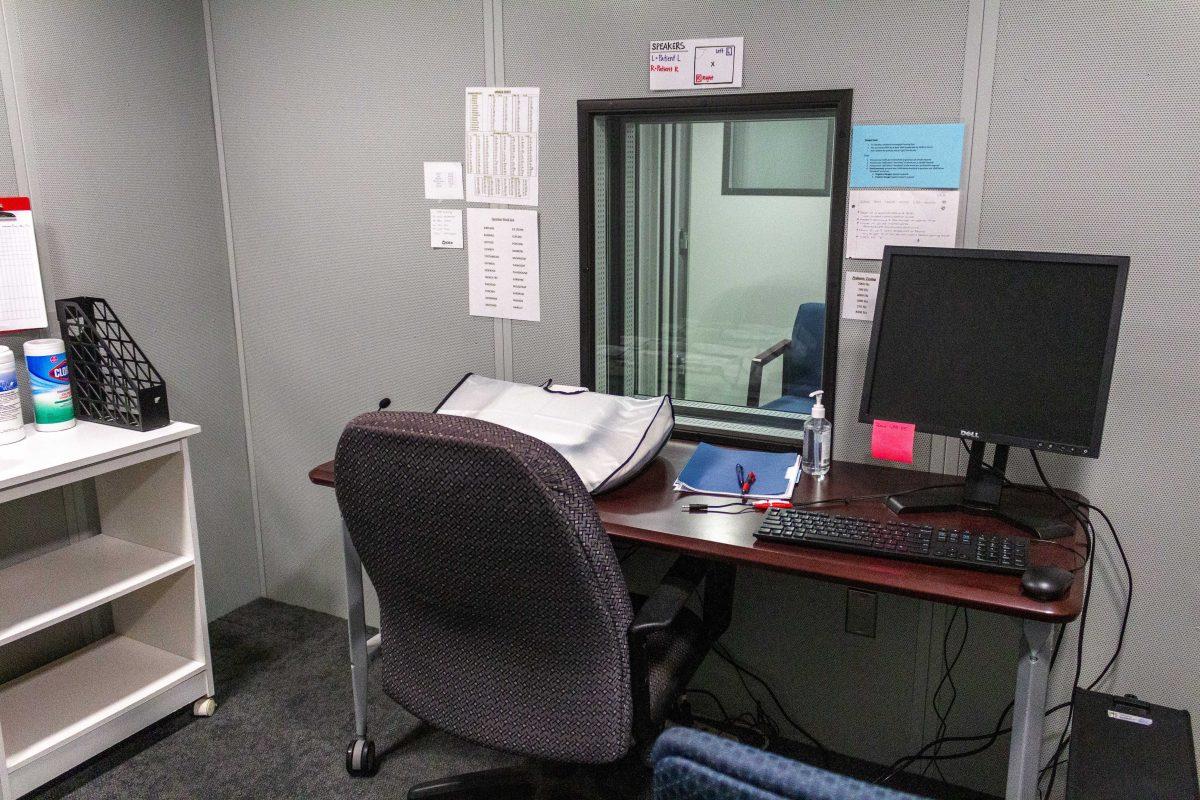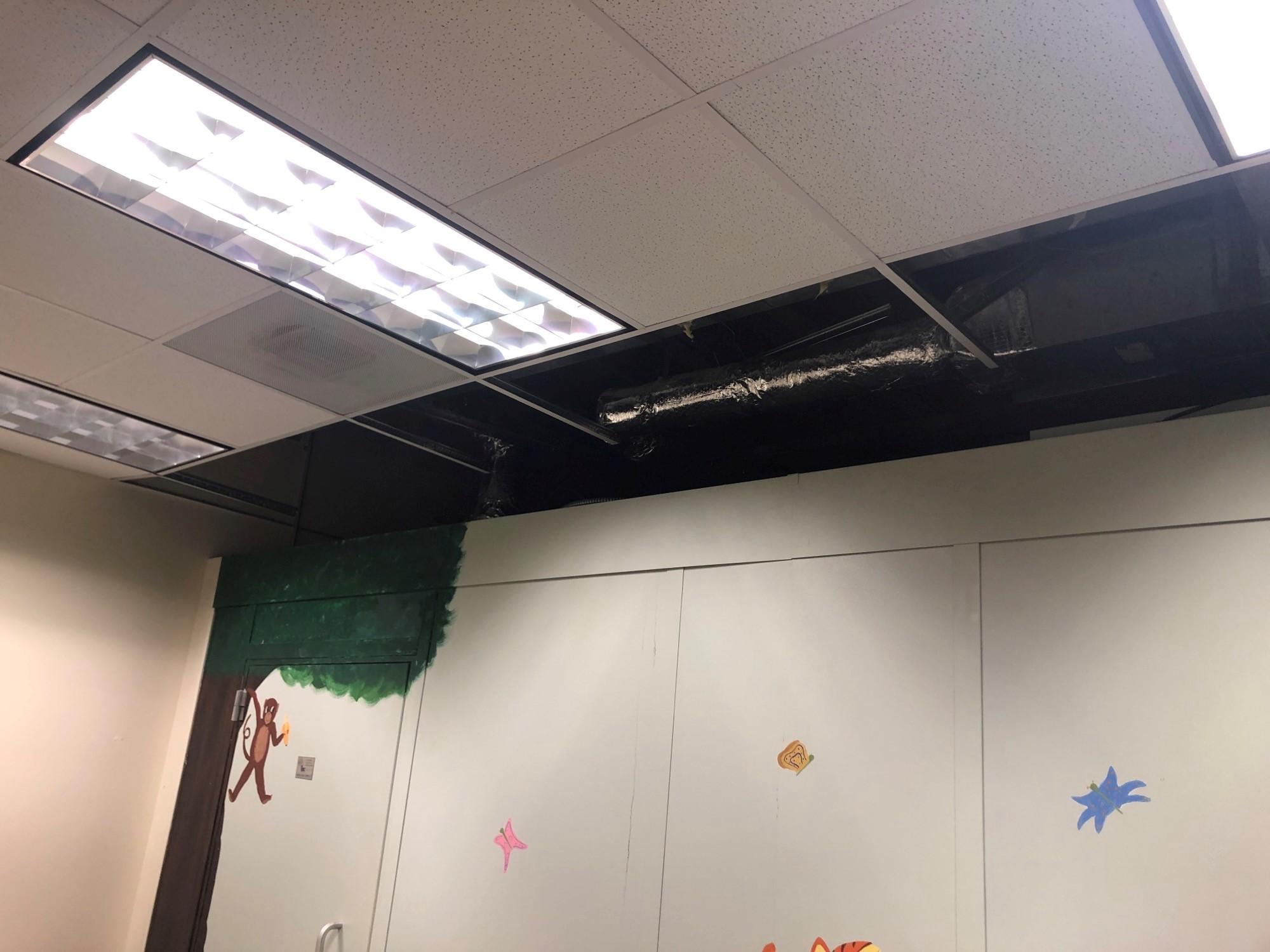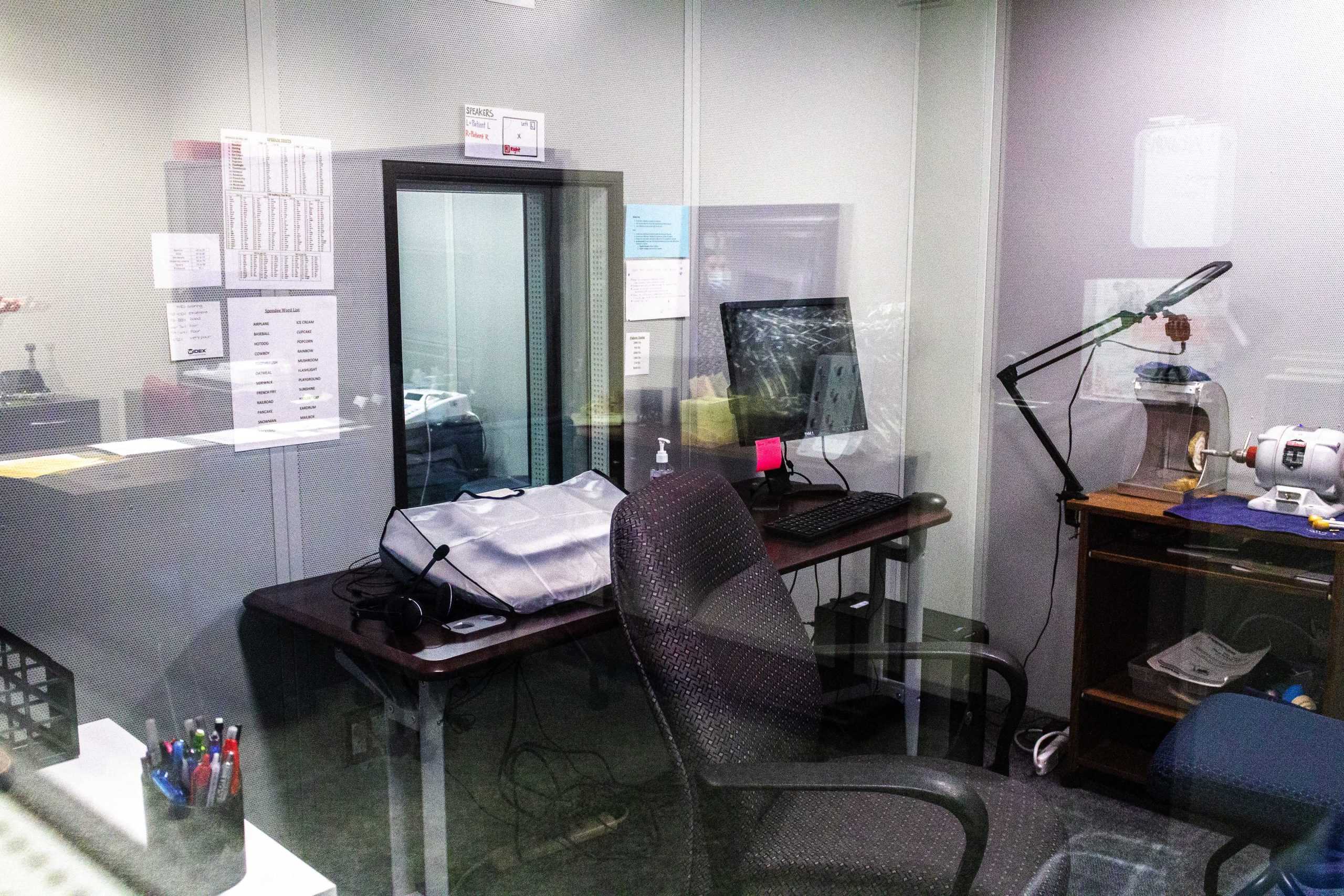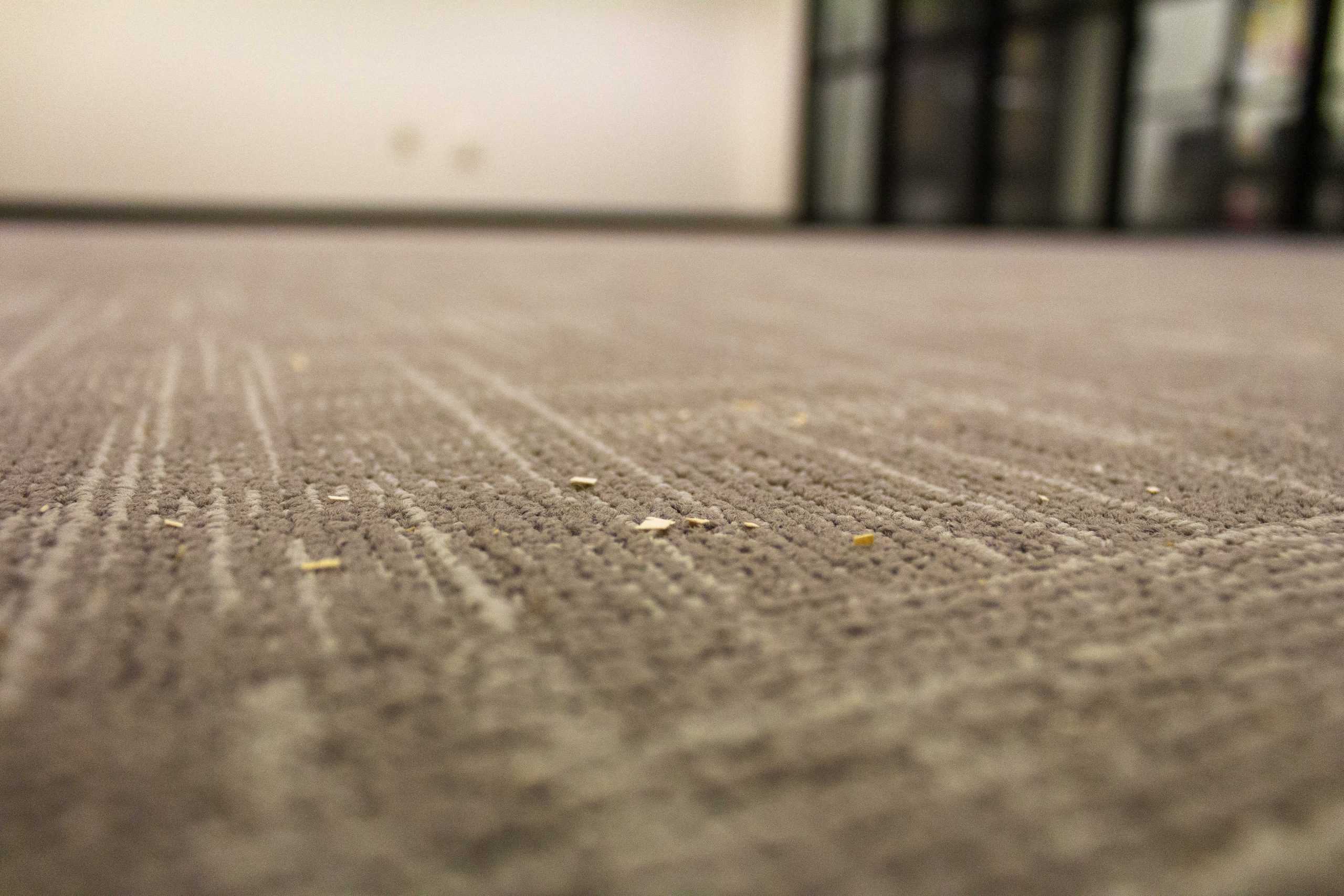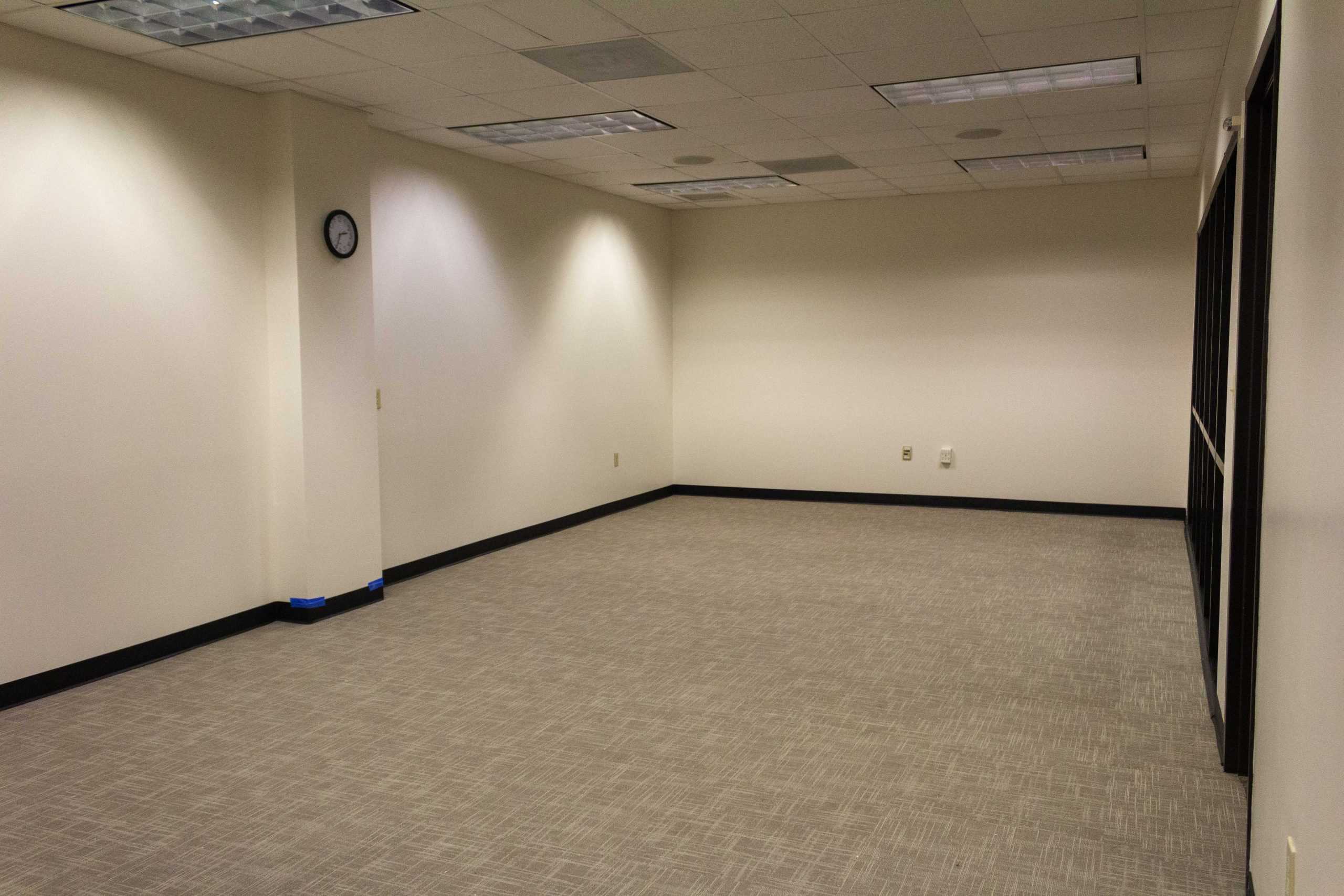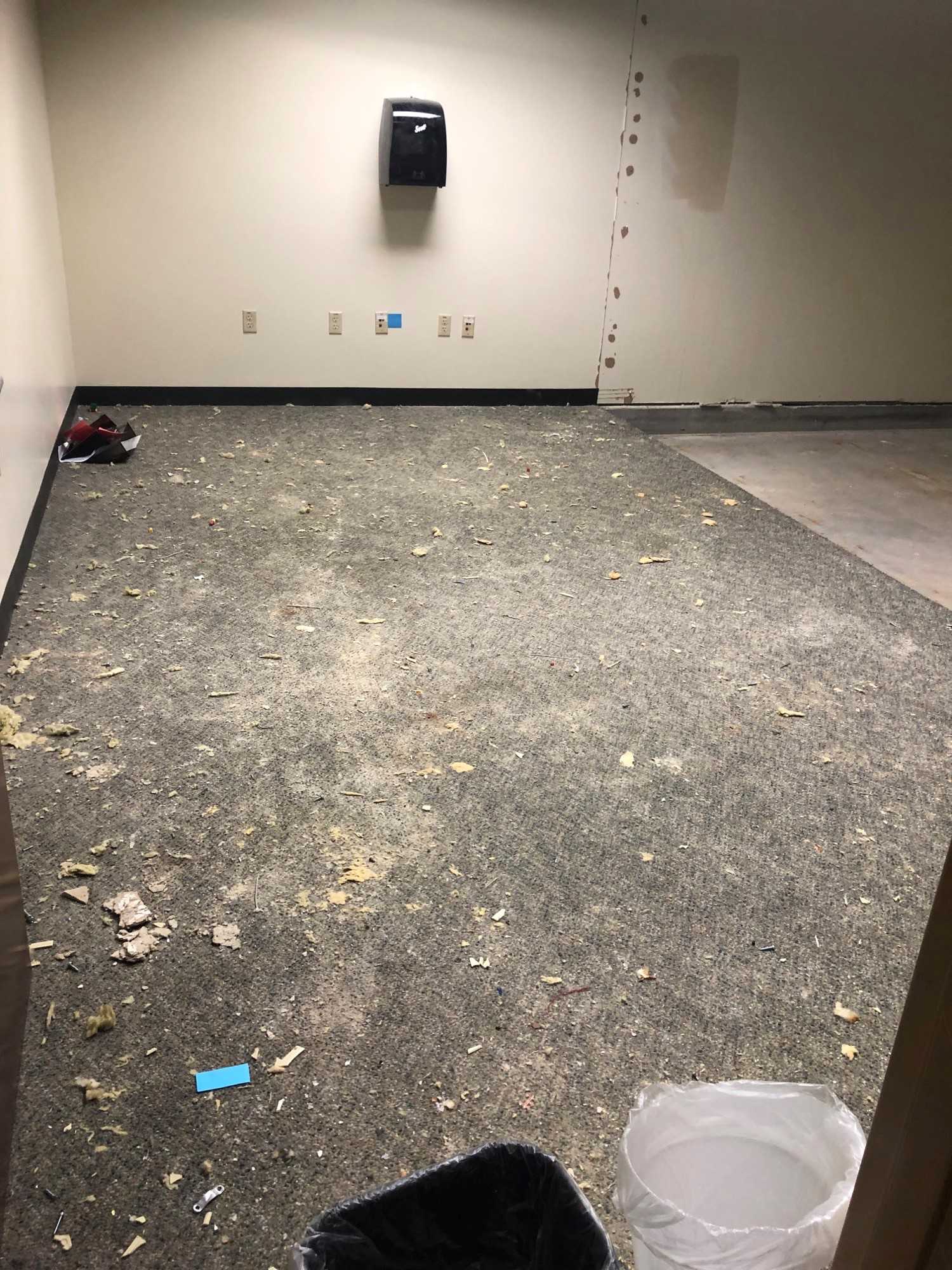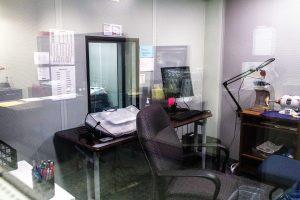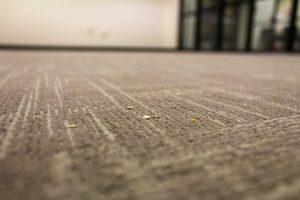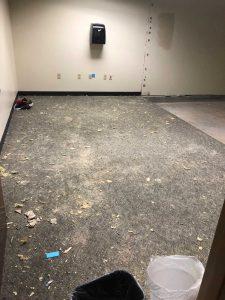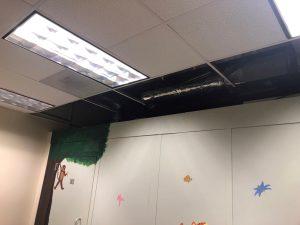Note: Louisiana legislators will decide what to do with a significant surplus of cash available to the state in the next legislative session in March. Ahead of the session, The Reveille is dedicating a string of stories looking at LSU’s infrastructure. This is the seventh story in the ongoing series.
In the Speech-Language-Hearing Clinic in the basement of Hatcher Hall, audiologists and speech pathologists from the Department of Communication Sciences and Disorders work with pieces of equipment like specially designed sound booths that cost thousands of dollars to diagnose patients of all ages with various communication disorders, including deafness and fluency disorders.
Until recently, however, much of that equipment has been unusable following a series of leaks, mold and ceiling collapses due to multiple failures of the building’s HVAC system.
Three different incidents were reported in 2021 by department members that left some of them displaced and unable to see patients, do research and teach students for months.
The basement, which has been the department’s home following a $19.5 million renovation in 2004, has had issues with flooding in the past. The building, built in 1934, experienced 11 floods since the Department of Communication Sciences and Disorders relocated, Janet Norris, the department’s chair, said.
“The university worked hard to resolve those multiple issues,” Norris said.
Unlike the previous incidents of flooding that were due to rainwater, however, three occurrences in 2021 were all connected to the HVAC system above the department’s clinic, Norris said.
The first incident took place in Hatcher room 39 in February 2021 when a lab with an acoustic booth was flooded, Norris said. A leak in the HVAC system caused the ceiling to cave in and leak water into the booth.
“It led to rust, staining, broken tiles and a risk of mold. This damage prevented the researcher from using the sound booth for research purposes,” Norris said.
The booth had to be entirely removed and replaced with a similar one. The booth and the damages to the room cost $33,851, Norris said. The insurance claim on the damages was denied due to the leak being part of an ongoing issue, meaning the College of Humanities and Social Sciences had to cover the costs.
“Removing and replacing the booth has led to periods of time when the research lab could not be used at all, further detracting from research productivity,” Norris said.
Two months after the first incident, the same HVAC system flooded the audiological suite in room 55 used to train students in the clinic. The incident, which occurred on May 10, damaged the booth beyond repair.
The damages, caused by water leaking from a failed seal on an HVAC pipe, cost $78,177 to replace, Norris said.
“Without a booth our audiologist has been unable to provide diagnostic assessments on our patients,” Norris explained. “Without the ability to provide diagnostic assessments we have been unable to recommend and dispense hearing aids to our clients. This severely limited training for our students since May.”
Whitney Sutherland, one of the audiologists that utilizes the damaged equipment in her research and clinical work, explained that the equipment is extremely sensitive and the mere presence of water made the equipment unusable. The acoustic insolation of the booth was completely saturated, she said.
The new booth was not installed until December and Sutherland did not move back into the suite until Jan. 31.
“It completely halted audiological services on campus,” Sutherland said. “Think about the student education that we lost in the summer semester and the fall semester. I had an extern who was unable to see patients, I have undergrad students who are in clinic that couldn’t see patients.”
Another incidence of HVAC flooding occurred only 5 months later.
On Oct. 4, substantial flooding was reported in the main office of the Speech-Language-Hearing Clinic, room 68, Norris said. Electronics were saturated, the carpet was soaked, filing cabinets waterlogged and the ceiling collapsed.
“The carpet was saturated, the desks were damaged, were unusable and our filling cabinets was full of water. When I picked up binders, water fell out. There was water in the walls,” Melissa LaLande, clinical director, said. “We literally had to fight tooth and nail to get the carpet pulled up and to get the drywall cut and repainted to dry it.”
While the room was usable as of Jan. 31, furniture has still not been replaced and is not set to be replaced for a number of weeks, Norris explained.
LaLande explained that the solution proposed was to shampoo the carpets instead of replacing them. She said Facility Services assured them that the threshold for mold was well below safe levels.
“It felt like a big excuse,” she said. “After the carpet was cleaned, the smell was horrible here for days and days. And they still told us that the carpet could be cleaned and replaced.”
Three people didn’t feel safe returning to the office because of the smell and risk of mold, LaLande explained. Sutherland described the carpet as “squishing,” even after the cleaning.
In her audiological studio, Sutherland explained that she played a waiting game in the period she was without her equipment and space where she sent several emails to Facility Services to get the old booth removed and the area dried out. She felt that she was merely knocking on doors with no one behind them to answer their questions.
“I remember being told they had limited man-power and funding and they couldn’t prevent the leaks and the flooding,” Sutherland said. “Because of that, they said they could only come in and help us after they had already occurred.”
In the aftermath of all three incidents, Facility Services responded to the issues and fixed the problems.
For each incident, the mechanical seal on the HVAC system was either tightened or replaced and the leaks were reported to have stopped, Tammy Millican, Executive Director of Facility & Property Oversight, said.
Millican explained that Facility Services has taken steps to reduce water damage in buildings wherever possible like in the work done in the flood prone Himes Hall.
“In Hatcher, pans were added under the first floor pumps in an effort to catch any future seal leaks and direct the water to a drain. The HVAC was fitted with a float switch to shut the unit down if water reached a level that would overflow the pan and lead to leaks,” Millican explained.
Despite the flooding of the various rooms in the department all being connected to an issue with the HVAC system, insurance did not cover the damages and had to be paid for through the College of Humanities and Social Sciences.
Norris shared an email she sent to an LSU claim agent on Jan. 4 concerning a lack of communication regarding the status of the insurance coverage of the damages to the main office three months after the initial incident.
“Can you please let us know whether the furniture will be covered so we can move forward? We have been without our main office for three months and the semester is about to begin again,” the email read. “New clients will not have a place to register, receive parking passes etc. I do not understand why this decision is so delayed. We have not heard back about this claim.”
The insurance difficulties stemmed from the issues being unrelated, Bernadette Abadie, assistant to the department chair, explained.
“They told us it was multiple different issues so we would have to wait to see if insurance would cover it,” she said. “But the building and the HVAC is so old that it’s all connected. It is never maintained until tragedy strikes.”
Following the flooding, some of the functions of the affected areas were relocated to the fourth floor of Hatcher. Here, the department faced another troublesome HVAC system.
Due to the sensitive nature of their equipment and minute measurements involved in audiological research, the proximity to the fourth floor’s louder HVAC system made the relocation difficult, Sutherland explained.
Once returned to the department’s basement location, the affected staff were more weary than ever of the damage and insecurity of their facilities.
Outside of the damages caused by the HVAC, complaints of rain stopping the usage of elevators, poor accessibility for patients and parking troubles have been levied, LaLande said.
“It’s a stressful and heartbreaking situation to have potentially beautiful facilities that are being constantly flooded,” Norris said. “It was bad enough when it was caused by mother nature. But now it’s being caused from poor maintenance.”


